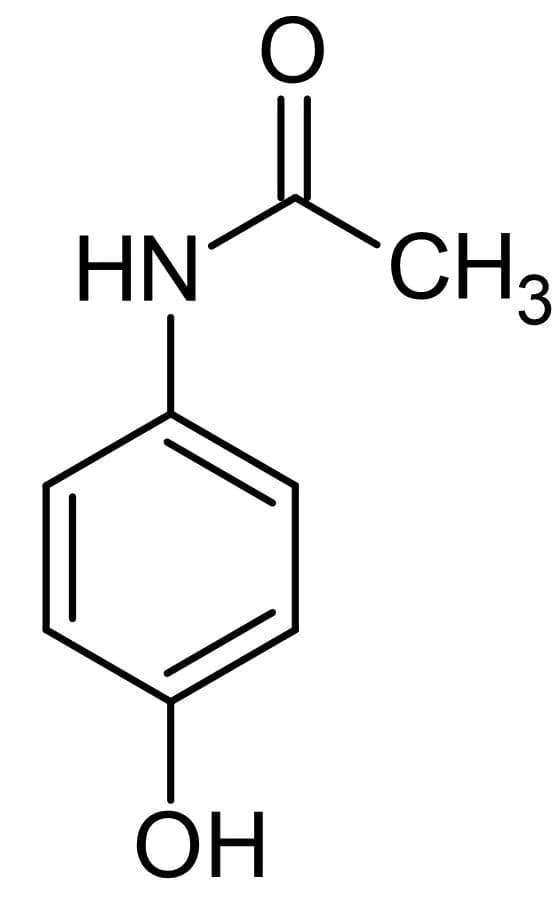Acetaminophen Max Daily Dose: What To Watch Out For?
Acetaminophen (also known as paracetamol) is a drug that acts as a pain reliever and fever reducer.
Acetaminophen, which stands out with its safety worldwide, can also cause health problems in some people.

Precautions While Using Acetaminophen
Contact your doctor before using Acetaminophen if you have any of the following health problems:
- It should be used with caution under the supervision of a doctor in patients with anemia, lung patients, liver and kidney dysfunction.
- It should be used with caution in case of skin rash, rash or a skin reaction.
- Do not use if you are taking other drugs containing acetaminophen. Concomitant use with other drugs containing acetaminophen may cause an overdose. Do not use together with drugs that contain acetaminophen, relieve pain, reduce fever, relieve flu and cold symptoms, or help sleep.
- People who first use acetaminophen or have a history of use, who experience skin rash, rash or a skin reaction at the first dose or repeated doses should not use this drug or any other drug containing acetaminophen again.
- If you drink alcohol, you should not take more than 2 grams of Acetaminophen per day.
- If you are underweight, anorexic, or have a nutritional deficiency
- If you have Gilbert’s syndrome, an inherited disease characterized by elevated liver enzymes and transient jaundice
- Hemolysis (destruction of red blood cells) may rarely be seen in patients with glucose 6 phosphate dehydrogenase deficiency, which is effective in blood sugar metabolism.
Acetaminophen Max Daily Dose
Like other drugs, too much acetaminophen can damage your liver and even cause liver problems and death.
In normal doses, acetaminophen is excreted by the body through the urinary tract without difficulty.
However, if you take too much of this drug, it can turn into a toxic substance for the liver.
The maximum accepted daily dose of acetaminophen is 4,000 milligrams.
But even for some people this level is toxic.
You should be sure to take only as much acetaminophen as you need and strive not to exceed 3,000 mg per day.
If you are concerned about how much acetaminophen to take based on your age, health status, and body weight, talk to your doctor or pharmacist.
If you take an excessive amount of the medicine, go to a health center without waiting and be sure to take the medicine you take with you.
The active ingredients written on the back of the package are what you should pay attention to when buying over-the-counter medications during a cold.
If the active ingredient of a cold medicine contains Acetaminophen, see how many milligrams it is.
Over-the-counter acetaminophen medications may contain 325, 500, or 650 milligrams of acetaminophen.
Especially 500 and 650 mg acetaminophen drugs should be used with caution.
Strictly follow the recommended doses in the leaflet that comes with the medicine (unless your doctor has prescribed a different dose).
Make sure you stay at the lower limit, especially if you have a low body weight (3,000 mg).
Drinking alcohol with acetaminophen is not a good idea and alcohol should be avoided as much as possible while taking this medication.
Mixing alcohol with paracetamol can damage the liver.
Do not consume alcohol without knowing whether your medication interacts with alcohol.
You can contact your doctor to find out if your medications interact with alcohol.
Concomitant Use With Other Drugs
The effect of acetaminophen may change when used with certain drugs. Please tell your doctor before taking acetaminophen if you are using the following drugs:
- Drugs that delay gastric emptying (Ex: propantheline, etc.)
- Medicines that accelerate gastric emptying (eg, metoclopramide)
- Medicines that stimulate liver enzymes
- Chloramphenicol, rifampicin, used as an antibiotic
- drugs that prevent blood clotting
- Zidovudine (a drug used for the treatment and prevention of HIV infections (AIDS) in children and adults)
- Domperidone (used to treat nausea and vomiting)
- St. John’s Wort-containing drugs
- Cholestyramine-containing drugs (used to treat high cholesterol)
- Drugs containing tropisetron and granisetron (used to prevent nausea and vomiting in patients receiving radiotherapy and/or chemotherapy)
- Use with other pain relievers
- Antidepressants (some drugs used to treat depression)
You may also notice our article on Spasfon 30 Tablets.
